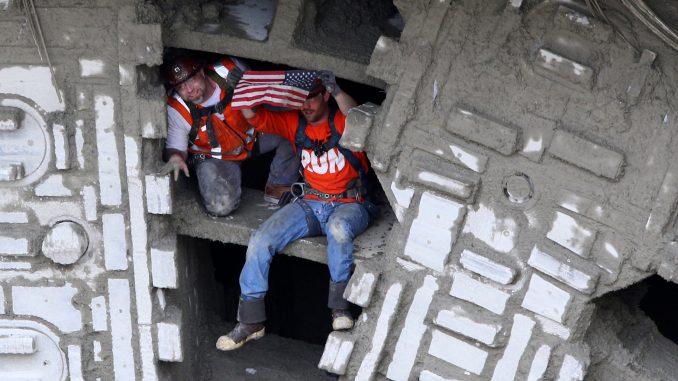
Political cartoons can be a good way to deliver truth, and there is fairly accurate one that depicts the demand for skilled labor. The cartoon shows two high school graduates: one tells an impending college student that he is going to a trade school to be a welder. Predictably, the future liberal arts student at generic university scoffs at the other guy, calling him a “loser.” Of course, the cartoonist prints the average starting salary for the welder, which is double that of a recent liberal arts grad, assuming he even lands a job.Recent stories out of Charlotte and Raleigh reinforce the need for more skilled labor and trade work. Because of the strong economic growth in North Carolina, the demand for more commercial construction and homes is skyrocketing. However, some projects are slowed significantly, which is increasing costs for buyers and developers alike.WRAL and WSOC-TV reported recently that skilled craftsmen are being poached from jobsites, lured away by higher pay. It’s a dilemma many employees dream of facing as many of the so called white-collar professions experience wage stagnation. In the Raleigh construction industry, instead, plumbers, electricians, and framers are seeing significant upticks in compensation. Construction companies are reaching out to area high schools and community colleges to encourage them to revive or bolster their trade programs.”Many of the best opportunities that exist today require a skill, not a diploma,” says popular “Dirty Jobs” television host Mike Rowe. The television personality even offers scholarships for those foregoing college to learn skilled trades. Rowe argues in favor of young people learning a skill where there is an actual demand. There will be 2 million unfilled trade jobs by 2025.Still, Washington politicians and many parents cling to the notion that completion of a four-year college degree is the only rewarding or lucrative path forward. Sen. Bernie Sanders, the supposed hero of the working man, ignorantly tweeted during his presidential campaign: “At the end of the day, providing a path to go to college is a helluva lot cheaper than putting people on a path to jail.” Welders, especially the highly skilled variety who are willing to travel, can easily earn over $100,000 annually. Not to mention, many who learn a trade are often better positioned to start their own business.While there were certainly many cringe-worthy moments of Donald Trump’s historic campaign for the presidency, he deservingly received a lot of support from blue-collar workers by not ignoring them. Eric Hoffer, the notable longshoreman philosopher, proclaimed that it would be the working classes, and not the central planning elites, who could save America in a crisis.America needs to do a better job at affirming skilled trades and manual labor. No longer merely seeing it as a fallback option, or somebody not living up to their potential. Professions such as machinist and welder are vital to our national security. After all, it was the industrial might of America that was pivotal to winning two world wars. As the country music singer Alan Jackson reminds us, “There is nothing wrong with a hard hat and a hammer.”Sure, skilled manual labor may not be a vocational calling for many, but even choosing it for a time will give citizens a renewed appreciation for those who utilize both body and mind in their profession.The demand for many skilled-labor positions continues to grow. While more and more work is outsourced, Americans still need people to fix their vehicles, upgrade infrastructure, and build things like bridges and skyscrapers. This is especially true as many Americans, especially men, are becoming more ignorant in repairs and even operating basic tools.As the college price tag continues to climb, and campuses become more radicalized with entitled students, the demand for more trade skills should be enticing for those looking for not just more, but often better options.
Ray Nothstine is a member of the North State Journal’s editorial board, separate from the news staff. Unlike other newspapers, the North State Journal does not publish unsigned editorials; the author or authors of every editorial, letter, op-ed, and column is prominently displayed. To submit a letter or op-ed, see our submission guidelines.




